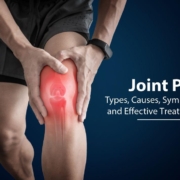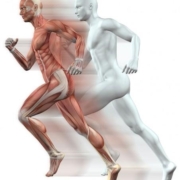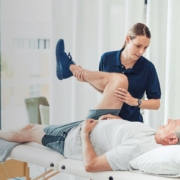MSK Health and Mental Health: The Interconnectedness
Your Mind Matters: How Mental Health Impacts Musculoskeletal Health
We often think about our physical and mental health as separate entities. But the truth is, they’re deeply interconnected. This is especially true when it comes to musculoskeletal (MSK) health – the well-being of your muscles, bones, joints, tendons, and ligaments.
Why is this connection important? Because stress, anxiety, and other mental health challenges can significantly impact your risk of MSK pain and injury.
The Mind-Body Link: How Mental Health Affects Your MSK System
Here’s how your mental well-being can influence your physical health:
Muscle Tension: When you’re stressed or anxious, your muscles tense up. Chronic stress can lead to persistent muscle tightness, pain, and even headaches.
Inflammation: Studies show a link between chronic stress and increased inflammation throughout the body. This inflammation can contribute to joint pain, stiffness, and conditions like arthritis.
Pain Perception: Your mental state can influence how you perceive pain. Feelings of anxiety and depression can actually make you more sensitive to pain signals.
Sleep Disruption: Mental health challenges often disrupt sleep. Poor sleep quality can hinder your body’s ability to repair tissues and manage pain, leading to a vicious cycle of pain and fatigue.
Reduced Physical Activity: When you’re struggling mentally, it’s harder to find the motivation to stay active. This lack of movement can weaken muscles, decrease flexibility, and increase your risk of injury.
Taking Charge: Tips for Supporting Both Your Mental and MSK Health
The good news is that there are many things you can do to nurture both your mental and physical well-being:
1. Manage Stress:
Practice Relaxation Techniques: Explore techniques like deep breathing exercises, meditation, or progressive muscle relaxation to calm your mind and release muscle tension.
Prioritize Self-Care: Make time for activities you enjoy, whether it’s reading, taking a warm bath, spending time in nature, or connecting with loved ones.
Seek Professional Help: If you’re struggling with chronic stress, anxiety, or depression, don’t hesitate to reach out to a mental health professional.
2. Stay Active:
Find an Activity You Enjoy: Engage in regular physical activity that you find enjoyable and sustainable. This could be walking, swimming, dancing, gardening, or anything that gets you moving.
Start Slowly and Gradually Increase Intensity: Don’t overdo it, especially if you’re new to exercise. Listen to your body and gradually increase the intensity and duration of your workouts.
Focus on Proper Form: Use proper form and technique to avoid injuries. If you’re unsure about proper form, consult with a qualified fitness professional.
3. Prioritize Sleep:
Establish a Regular Sleep Schedule: Go to bed and wake up around the same time each day, even on weekends, to regulate your body’s natural sleep-wake cycle.
Create a Relaxing Bedtime Routine: Wind down an hour or two before bed with calming activities like taking a warm bath, reading, or listening to soothing music.
Optimize Your Sleep Environment: Make sure your bedroom is dark, quiet, and cool for optimal sleep.
4. Seek Support:
Connect with Loved Ones: Talk to friends, family, or a support group about what you’re going through. Sharing your feelings can help you feel less alone and more supported.
Consult with a Healthcare Professional: If you’re experiencing persistent pain or mobility issues, consult with a doctor or physical therapist. They can help diagnose the root cause of your pain and recommend appropriate treatment options.
Taking Care of Your Whole Self
Remember, your mental and physical health are intertwined. By taking steps to manage stress, stay active, prioritize sleep, and seek support when needed, you can nurture both your mind and body and promote overall well-being.









